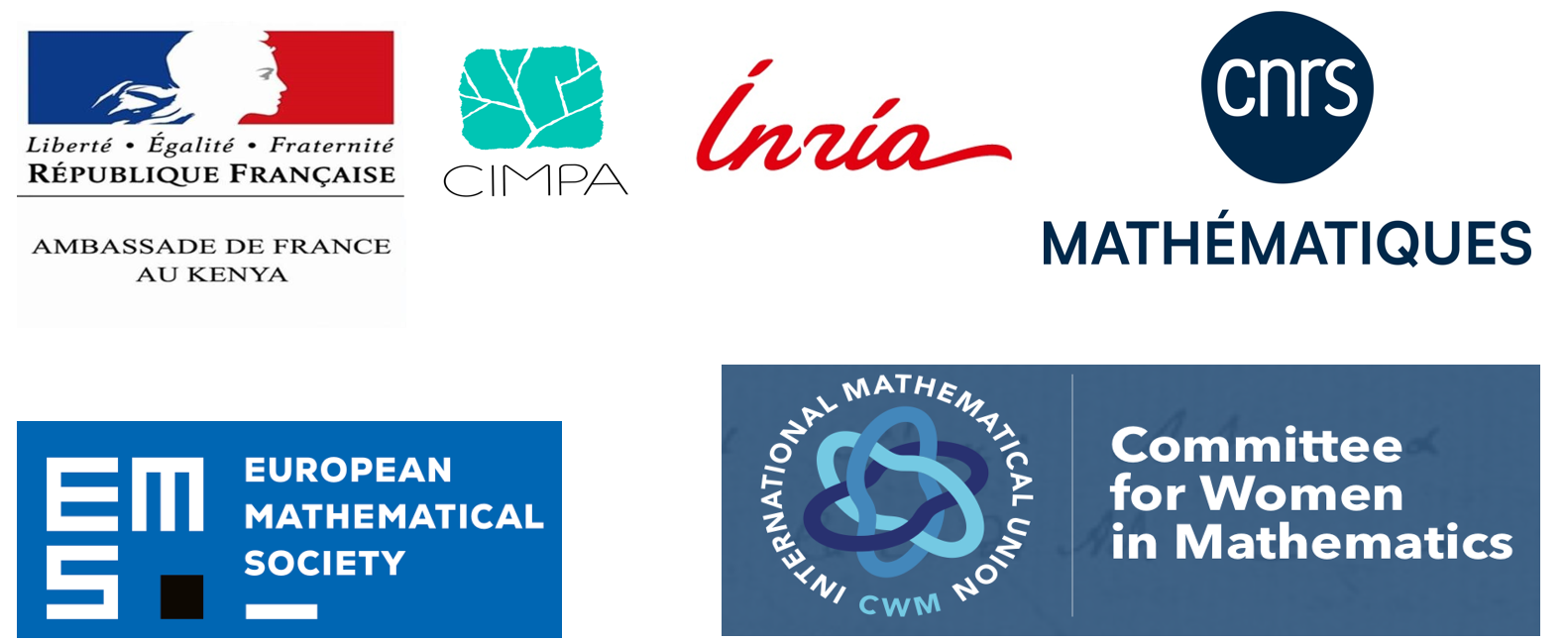.
CIMPA SCHOOL KENYA 2025 organised on
Data Driven epidemiological Models:
Current Trends and new Threats
7 th – 19 th July 2025
Overview
Epidemics have invaded populations throughout history threatening the existence of humankind.
Today’s world continues to be confronted by endemic, emerging, and reemerging infectious
disease outbreaks. These threats differ widely in terms of severity and extent, with varying
consequences on morbidity and mortality, as well as for a complex set of social and economic
effects. Recent outbreaks of an array of infectious diseases such as Ebola, Severe Acute
Respiratory Syndrome (as SARS and COVID-19), and pandemic Influenza H1N1, have raised
the global concern in public health. Moreover, they showed that a key factor for disease control
is human behavior.
Together with rising population growth rates in areas where health infrastructure is weak, the
issue concern is also magnified by climate change that is driving epidemics, civil conflict in poor
communities, and pathogen adaptation to control measures. These concerns call for concerted
efforts to mitigate the impact of the epidemic on the masses.
Aim
Our aim is to bring together several different disciplines required to provide a holistic approach
to epidemic analysis, such as mathematics, data science and artificial intelligence,
epidemiology, and climate change science experts, to assess infectious disease spread and
associated social/economic risks.
The school aims at analysing the role of data-driven methodologies for pandemic modelling and control.
The impact for the early carrier researchers that will participate to this summer school will be:
• Exposure to the state-of-the-art interplaying scientific topics:
• Exposure to world first class scholars that will deliver the lectures;
• Potential increase of employability beyond academia: public health institutes, health ministry
and non-governmental organisations.rea, and to put the students in contact with some of the international experts that are currently trying to solve them.
Courses will include:
• Course on Visualisation, exploration, and statistical analysis of epidemiological data will be
given.
• A review of the available methodologies in Machine Learning, Dynamical Systems and their
interaction.
• Discussion of challenges faced in the development of data-driven strategies to mitigate combat
the spreading of infectious diseases.
• Development and analysis of data-driven models to:
(i) monitor the epidemic evolution;
(ii) assess the effectiveness of applied control measures;
(iii) model and predict the spread of the epidemic;
(iv) make timely decisions to manage, prevent and control the spread of infectious diseases;
(v) discuss their application to past or present epidemics, such as COVID-19, as well as their
potential application to future epidemics.
Scientific committee
- Josephine Wairimu Kagunda, University of Nairobi, Kenya(Organiser)
- Abderrahman IGGIDR, Inria and University of Lorraine, France(External Coordinator)
- Beth KIRATU, Technical University of Kenya (Secretary)
- Enrico Bibbona, Politecnico Di Torino, Italy
- Joseph Mwaniki, University of Nairobi, Kenya.
- Farai NYABADZA, University of Johhanesburg, SA.
- David Malonza, SEKU, Kenya (LOC member).
Organizing committee and members of the teaching team.
- Josephine Kagunda, University of Nairobi, Kenya (Local Coordinator / Organiser)
- Abderrahman IGGIDR, Inria and University of Lorraine, France(External Coordinator)
- Beth KIRATU, Technical University of Kenya (Secretary)
- Joseph Mwaniki, University of Nairobi, Kenya.
- David Malonza, SEKU, Kenya (LOC member).
Scientific committee
- Josephine Wairimu Kagunda, University of Nairobi, Kenya(Organiser)
- Abderrahman IGGIDR, Inria and University of Lorraine, France
- Beth KIRATU, Technical University of Kenya (Secretary)
- Enrico Bibbona, Politecnico Di Torino, Italy
- Joseph Mwaniki, University of Nairobi, Kenya.
- Farai NYABADZA, University of Johhanesburg, SA.
- David Malonza, SEKU, Kenya (LOC member).
Organizing committee and members of the teaching team.
- Josephine Kagunda, University of Nairobi, Kenya (Local Coordinator / Organiser)
- Abderrahman IGGIDR, Inria and University of Lorraine, France (External Coordinator)
- Beth KIRATU, Technical University of Kenya (Secretary)
- Joseph Mwaniki, University of Nairobi, Kenya.
- David Malonza, SEKU, Kenya (LOC member).

Programme
Here is the detail Cimpa School 2025 programme click here
Click:Zoom link for all the meetings
Lecturers
- Enrico Bibbona, Politecnico di Torino, Italy
Title: Bayesian statistics and epidemics
slides:
Lecture 1:Bayesian inference
- Alberto D'ONOFRIO, University of Trieste, Italy.
- Josephine Kagunda, University of Nairobi.
Title: Data Analysis and model fitting in R
slides:
Lecture : Data Driven Epidemiological Models: Data Fitting in R
- Farai NYABADZA, University of Johhanesburg, SA
Title: Adaptive dynamics (AD) : a mathematical framework for dealing with eco-evolutionary problems
Lecture 1
- Buonomo BRUNO, University of Naples Federico II.
Title: Theory and applications of epidemic models with behavioral changes
Theory and applications of epidemic models with behavioral changes
- Faraimunashe CHIROVE, University of Johhanesburg.
Title: Data-driven in host mathematical models for infectious diseases
- Nelima KHAEMBA, IQVIA, Kenya
Title: Epidemiological Data Programming using SAS
- Arnaud DUCROT, Universitie Le Havre Normandie, France.
- Eunice MUREITHI, University of Dar Es Salaam, Tanzania.
Important dates
- April 7, 2025 – Registration and application deadline
- 7 th – 19 th July 2025 – Workshop date
Venue
Jumuia Conference and Country HomeP. O. Box 212-00217 Limuru • Tel: 020- 204 8881, 020 – 206964/5/6/7 Cell No. 0727821746 Q.
reservations.limuru@resortjumuia.com
www.resortjumuia.com
Important dates
3 March 2023– Extended to 24 March 2023 - deadline for submission of a title and an extended abstract- 17 April 2023 – acceptance notification to the authors
- 3 May 2023 – last date for the payment of the early registration fee: standard € 180 / reduced for PhD students € 120.
After this date the fees will be: standard € 250 / reduced € 150 - 7 th – 19 th July 2025 – Workshop date
Registration and application for support
Contacts
- Josephine Wairimu Kagunda, University of Nairobi
jwndirangu@uonbi.ac.ke - Abderrahman IGGIDR, Inria and University of Lorraine, France
Abderrahman.Iggidr@inria.fr